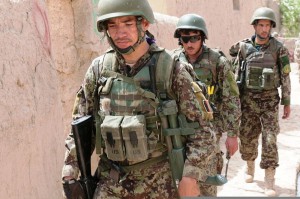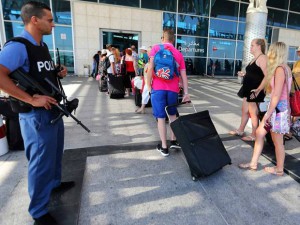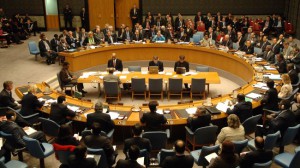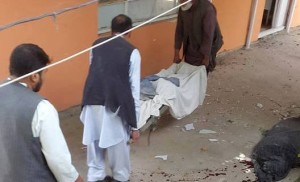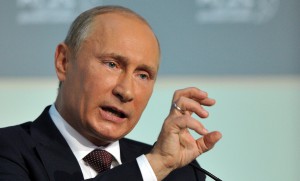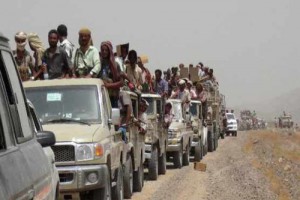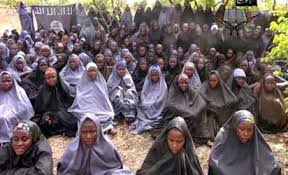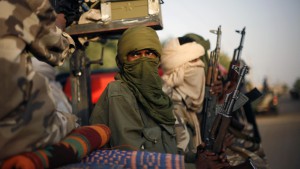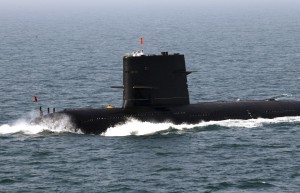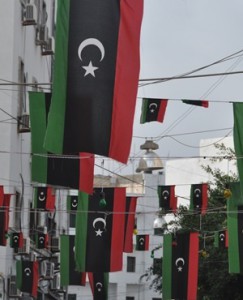Tunisia will boost security to win back tourists
Tunisia has seen tourism numbers plummet after a gunman killed dozens of holidaymakers at a beach resort in June, but hopes increased security at hotels, airports and museums can start to restore some confidence in the North African country.
“We are scared Tunisia will disappear off the tourist map,” Abdellatif Hamam, the director general of the Tunisian Tourist Office said on Tuesday at a tourism conference in Germany.
“The top priority for the next years will be safety, safety, safety. We cannot afford any more incidents that (target) the tourism sector,” he added.
The country, which relied on tourism for around seven percent of its gross domestic product, is under a state of emergency after two Daesh militant attacks on tourist sites.
Thirty-eight people were killed by the gunman at a hotel in Sousse on the Mediterranean Coast in June, just three months after 21 tourists were killed in the Bardo National Museum in Tunis.
Hamam said Tunisia had been slow to halt the gunman in Sousse and that the country was now learning from security forces from Germany, France, Britain and Italy.
He said more spot checks were being carried out at hotels, both by Tunisian authorities and the hotel companies themselves, and the government had the power to close any hotels that were not complying with new tougher security provisions.
He added that Tunisia was also providing German partners with weekly updates on security.
gulftoday.ae
Russia to hold special meeting on Middle East at UN Security Council
Russia will hold a special ministerial meeting at the United Nations Security Council on Sept. 30 to discuss conflicts in the Middle East and North Africa, RIA news agency cited a deputy foreign minister as saying on Wednesday.
Russia took over the UN Security Council presidency for a month as of the beginning of September.
“There are new initiatives related to our presidency of the Security Council in September,” RIA quoted Deputy Foreign Minister Gennady Gatilov as saying. “(The special meeting) .. will be devoted to discussion of the conflicts in the Middle East and North Africa in the context of a terrorism threat.”
Suicide attack followed by rocket target Paghman district of Kabul
A suicide attacker has detonated a car bomb at the gate of the Paghman district office on Wednesday at around 11:00 a.m. local time, a security source said.
Kabul police spokesman, Ibadullah Razi told to Ariana News that we have been informed about an explosion in Baghman district of Kabul, but the type of the explosion is under investigation.
There are no accurate details about the number of casualties, but head of Paghman district’s criminal investigative team is in the list of killed people.
Preliminary reports also suggest that a rocket has been landed near a girls school at the side of the district office from an unknown location resulting destructions to the school and has injured schoolgirls.
Eyewitnesses say ambulances were rushing toward Paghman district to transport casualties.
Taliban spokesman Zabihullah Mujahid took the responsibility of the suicide attack claiming dozens of police members including the head of the criminal investigations were killed in the attack, but no Afghan official yet to talk about causalities.
ariananews.af
Putin says Assad is ready to share power with Syria’s opposition
Russian President Vladimir Putin announced that Syrian President Bashar al-Assad is ready to share power with the opposition. “We know of President Assad’s readiness to involve in the process, in ruling the state, part of the opposition—the healthy part of the opposition,” stated Putin at a summit of the Collective Security Treaty Organization, a post-Soviet intergovernmental military alliance.
Putin emphasized that Russia supports the Syrian government. He promised to continue providing military and technical aid to Syria. The Russian President said it will be impossible to defeat the Islamic State without sustained efforts from the Syrian army.
“Russia, as you know, has proposed without delay to form a wide coalition to counter extremism. [The coalition] should unite everyone who is ready to contribute or is already contributing to the fight against terror,” said Putin.
The forgotten war: Yemen loyalists advancing against rebels in Marib
Yemeni loyalist forces, backed by the Saudi-led Arab coalition, said they were advancing Tuesday in a key province east of Sanaa, on the third day of a major offensive against rebels.
The coalition intensified its air strikes against the Iran-backed Huthi rebels earlier this month after a missile attack killed 60 Gulf troops, most of them Emiratis, in Marib province.
Troops loyal to exiled President Abedrabbo Mansour Hadi on Sunday began an all-out offensive against the Shiite rebels in Marib, aiming to retake the capital a year after it fell to the insurgents.
Supported by coalition air cover and ground forces, pro-Hadi fighters captured two strategic hills in the rebel stronghold of Sirwah, on the route to Sanaa, an officer said.
“We have pushed the Huthis out of these two hills and entered Al-Zor,” a rebel position near Sirwah, Captain Zaid al-Qaisi of the Marib-based 14th Brigade told AFP.
“Coalition ground forces, mainly from the United Arab Emirates and also Saudi Arabia, are participating in the offensive,” he said, adding that they have been clearing mines planted by the rebels.
The UAE had said its troops were taking part in the latest operations in Marib and announced Monday the death of a second soldier.
Clashes also raged southwest of the Marib provincial capital, close to the historic site of the Marib Dam, military sources said.
Marib city is controlled by troops and tribes loyal to Hadi, but parts of the oil-rich province are still in the hands of the rebels.
“If you want to go to Sanaa, you need to go to Marib—it’s the last line,” said Brigadier General Ali Al-Kaabi, the commander of the Emirati contingent, quoted in The National Abu Dhabi-based English-language newspaper.
Rebel fighters who had been surrounding Marib city have now been forced into the mountains, he added.
The United Arab Emirates lost 52 soldiers in a missile attack by the rebels on September 4 in Marib, which killed a total of 67 coalition troops.
The Arab alliance has waged daily air strikes since March against the rebels, who are backed by renegade troops loyal to former autocratic president Ali Abdullah Saleh.
The air war came after the insurgents had advanced on the southern port city of Aden, where President Hadi had taken refuge after the Huthis seized the capital in September 2014.
Pro-Hadi fighters, backed by troops freshly trained and armed by Saudi Arabia, pushed the rebels out of Aden in July and have since recaptured four other southern provinces.
The United Nations says nearly 4,900 people have been killed and some 25,000 wounded since late March, while 21 million out of Yemen’s population of 25 million have been affected by the conflict.
The escalation in Marib came as the exiled government backed out of a proposed new round of UN-brokered peace talks, insisting that rebels should withdraw from captured territory.
The UN’s special envoy for Yemen, Ismail Ould Cheikh Ahmed, had announced last week that the government and the rebels agreed to attend talks in Oman, the only Gulf Arab state not in the Saudi-led coalition.
Nigeria: swap Chibok girls with Boko Haram’s bomb expert arrested
President Muhammadu Buhari has said that one of the conditions given by Boko Haram for the release of the abducted Chibok schoolgirls was for the Nigerian government to release one of the sect members with expertise in making Improvised Explosives Devices (IEDs).
The News Agency of Nigeria (NAN) reports that the President stated this on Tuesday in Paris while responding to questions from members of the Nigerian community in France under the auspices of Nigerians in Diaspora Organization (NIDO).
Mr. Buhari however said his government would not accept such a demand.
“They wanted us to release one of their leaders who is a strategic person in developing and making Improvised IEDs that is causing a lot of havoc in the country by blowing people in Churches, Mosques, market places, motor parks and other places,” Mr. Buhari said.
He reiterated the administration’s readiness to negotiate – on certain conditions – with the terrorists for the release of the schoolgirls abducted since April 2014.
“The issue of Chibok girls has occupied our minds and because of the international attention it drew and the sympathy throughout the country and the world. The government is (looking into possibility of) negotiating with some of the Boko Haram leadership,” the president said.
Mr. Buhari, however, stated that government must first establish genuine members of the sect so that it would not make the mistake of engaging the wrong persons.
“It is a very sensitive development in the sense that first we have to establish, are they genuine leaders of the Boko Haram. That is number one.
“Number two, what are their terms, the first impression we had was not very encouraging,’’ the president said.
He expressed his administration’s worries over the continued stay of the Chibok schoolgirls in the hands of their captors, saying he was working tirelessly to get them released.
Mr. Buhari noted that the unfortunate incident had attracted global attention and sympathy within and outside Nigeria and government could not fold its alms over the issue.
“But, it is very important that if we are going to talk to anybody, we have to know how much he is worth.
“Let them bring all the girls and then, we will be prepared to negotiate; I will allow them to come back to Nigeria or to be absorbed in the community.
“We have to be very careful; the concern we have for the Chibok girls, one only imagines if they got a daughter there between 14 and 18 and for more than one and a half year, a lot of the parents who have died would rather see the graves of their daughters rather than the condition they imagine they are in.
“This has drawn a lot of sympathy throughout the world; that is why this government is working very hard in negotiating and getting the balance of those who are alive,” he said.
Mr. Buhari assured the diasporans that his administration was doing everything possible to improve on the state of the economy through provision of infrastructure in critical sectors.
The president’s Special Adviser on Media and Publicity, Femi Adesina had, in July, confirmed the willingness of government to engage the sect in negotiations if they were ready.
The Nigerian Army spokesman, Sani Usman, was quoted in the media as saying that members of the terror group were surrendering “en masse” and that the regional offensive was recording fruitful results against the militants.
Some Nigerians, who fielded questions during the interaction with President Buhari, requested to know what government was doing to guarantee the plight of the disabled.
Questions were also asked about the possibility of diaspora Nigerians to vote during elections.
premiumtimesng.com
Mali militias withdraw from key town but expand northwards
Mali’s pro-government militias have withdrawn from the flashpoint town of Anefis but are pushing northwards to another settlement, the United Nations mission (MINUSMA) said on Tuesday.
Mediators are struggling to make armed groups in Mali’s desert north abide by the terms of a U.N.-backed June peace deal which seeks to turn the page on decades of Tuareg rebellions since independence from France in 1960.
The departure of the Platform coalition from Anefis comes after weeks of pressure from Western donors, MINUSMA and even from the Malian government following a series of clashes there last month that killed at least 20 people.
“MINUSMA congratulates itself on the retreat yesterday of members of Platform from Anefis and its surroundings,” MINUSMA said in a statement. “However, MINUSMA is extremely concerned about the northerly movement of Platform towards Aguelhok.”
It added that the Tuareg separatist alliance known as Coordination of Azawad Movements (CMA) were also moving into new territory and urged both sides to revert to June positions.
Security sources say that the battle for positions among the groups led by rival Tuareg leaders is motivated partly by competition for desert trafficking corridors for both cocaine and legal goods like food and cigarettes.
Expansion may also benefit armed groups if the peace deal proceeds as key army posts and development funding are expected to be distributed to local communities.
Medhi Ag Almoubareck, spokesman for Platform’s largest group GATIA, said troops were heading towards the town of Aguelhok to visit family members. He said they had been instructed not to touch the CMA stronghold of Kidal, a move likely to trigger a major riposte from separatists.
CMA spokesman Attaye Ag Mohamed said they did not yet have confirmation of the departure of Platform troops from Anefis and condemned their spread further north.
China trying to undercut Germany on submarine offer to Egypt
China is trying to sell two submarines to Egypt that are cheaper than vessels on offer from Germany, industry sources told Reuters, as Beijing looks to expand weapons exports beyond its traditional customer base in Asia.
Beijing has sought to undercut Western submarine makers on price and by offering attractive export-credit terms for sales in Asia, the sources said. It has won deals with Pakistan and Bangladesh so far.
China displaced Germany as the world’s third-largest arms exporter, the Stockholm International Peace Research Institute (SIPRI) said in March, though nearly 70 percent of those weapons went to Pakistan, Bangladesh and Myanmar.
An Egyptian military source said China had offered to sell submarines to Cairo.
“We are studying it, but it is not an easy decision,” said the source, who declined to give details or be identified because he was not authorized to talk to the media.
An Egyptian military spokesman said he “had no official details” on the issue. China’s Defense Ministry did not respond to a request for comment.
Two industry sources familiar with the matter said Cairo wanted two more submarines after ordering an initial two from ThyssenKrupp Marine Systems (TKMS) of Germany in 2011 that are set to be delivered in 2017. TKMS has been in talks with Egypt for the additional two, they said.
While TKMS declined to comment, Germany’s Economy Ministry said it had authorized the construction of the two additional submarines for Egypt.
In a sign of developing ties, German company Siemens signed an 8 billion euro ($9.05 billion) deal with Egypt in June to supply gas and wind power plants.
Beijing had asked Egypt to consider its newer submarines as a lower-cost alternative, the sources said, adding they did not know the type of vessel China had offered or the precize pricing terms.
“Submarines are definitely on the cards, even though Egypt has been talking to Germany about the additional boats for a while,” said one of the industry sources.
Chinese submarines are built by Wuchang Shipbuilding, which is part of state-run China Shipbuilding Industry Corp. Neither company responded to a request for comment.
Long history
China and Egypt have long had friendly ties, and China supplied Egypt with four Ming-class diesel-electric submarines in the 1980s.
Egyptian President Abdel Fattah al-Sisi told Chinese President Xi Jinping during a trip to Beijing in December that he wanted more military and security cooperation with China, according to the official Chinese account of the meeting.
Xi made similar comments to Sisi when the Egyptian leader visited Beijing this month to attend a military parade marking the 70th anniversary of the end of World War Two. Chinese and Egyptian warships also held their first joint naval drills this month.
Sina News, a popular Chinese news site regulated by the government, said in a commentary last month that China’s submarine builders must “make preparations” to meet growing demand from Egypt and other countries in Africa.
China was Egypt’s best option for buying submarines because of Cairo’s budget constraints, it said.
Pakistan approved a deal to buy eight submarines from China earlier this year, while Beijing has also sold two submarines to Bangladesh.
In July, Thailand put on hold a plan to buy three Chinese submarines, citing the need to evaluate if its navy really needed the vessels.
China operates a fleet of some 70 submarines, allowing Beijing to project power throughout Asian waters.
Price is right
China was proving a tough competitor for Western defense contractors in submarine tenders, the second industry source said.
“Their prices are much lower … and the Chinese export credit terms are extremely attractive for military products,” said the source, declining to be identified because of the sensitivity of the issue.
Security experts said they believed China was mainly offering a version of its Song-class submarine for sale on international markets. The vessel is a modern diesel-electric attack submarine that experts say incorporates Chinese adaptations of German and French systems.
The larger and newer Yuan class boat has a Chinese-designed air-independent propulsion system, according to Chinese news reports, which means it doesn’t need to surface as often as other diesel submarines. It also has a smaller acoustic signature, making it harder to detect.
Several experts, however, questioned how capable the propulsion systems and batteries are, and if they have kept up with Western submarines.
The Chinese might not have the best submarines on the market, but price was important for developing countries such as Egypt, said Richard Bitzinger, a regional security expert at the S.Rajaratnam School of International Studies in Singapore.
“It may be a challenge to coordinate operations when you have submarines manufactured by different countries, but that is not a concern for these developing countries as they are more bothered about what is the best deal for them,” he said.
jakartaglobe.beritasatu.com
Libya’s internationally recognised government rejects peace deal amendments
Libya’s internationally recognised government said on Tuesday it had rejected changes introduced by its rivals to a draft UN peace deal, denting hopes of a breakthrough in the country’s political crisis.
A statement from the recognised government said it “rejects all amendments and modifications to the text of the deal” to which it had agreed in July, but which the rival administration in Tripoli asked to modify.
Libya, torn apart since dictator Muammar Gaddafi’s ouster in 2011, has two rival administrations – the General National Congress (GNC) in Tripoli and the internationally recognised government in the east.
The factions agreed in January to set up a national unity government to restore stability to the North African country, but have disagreed about the details.
Amendments suggested by the GNC – including a call to respect a judgment of the Tripoli-based supreme court invalidating the internationally recognised government – were rejected by the Tobruk-based administration.
The rejection throws into doubt UN envoy Bernardino Leon’s hopes that a unity government can be formed by October 20.
Leon said over the weekend in the Moroccan resort town of Skhirat where previous rounds of negotiations have been held that the two sides had reached “a consensus on the main elements” of a deal.
The rise of the Islamic State jihadist group and Libya’s emergence as a smuggling hub for migrants risking their lives to cross the Mediterranean have added to the urgency of the long-running talks.
